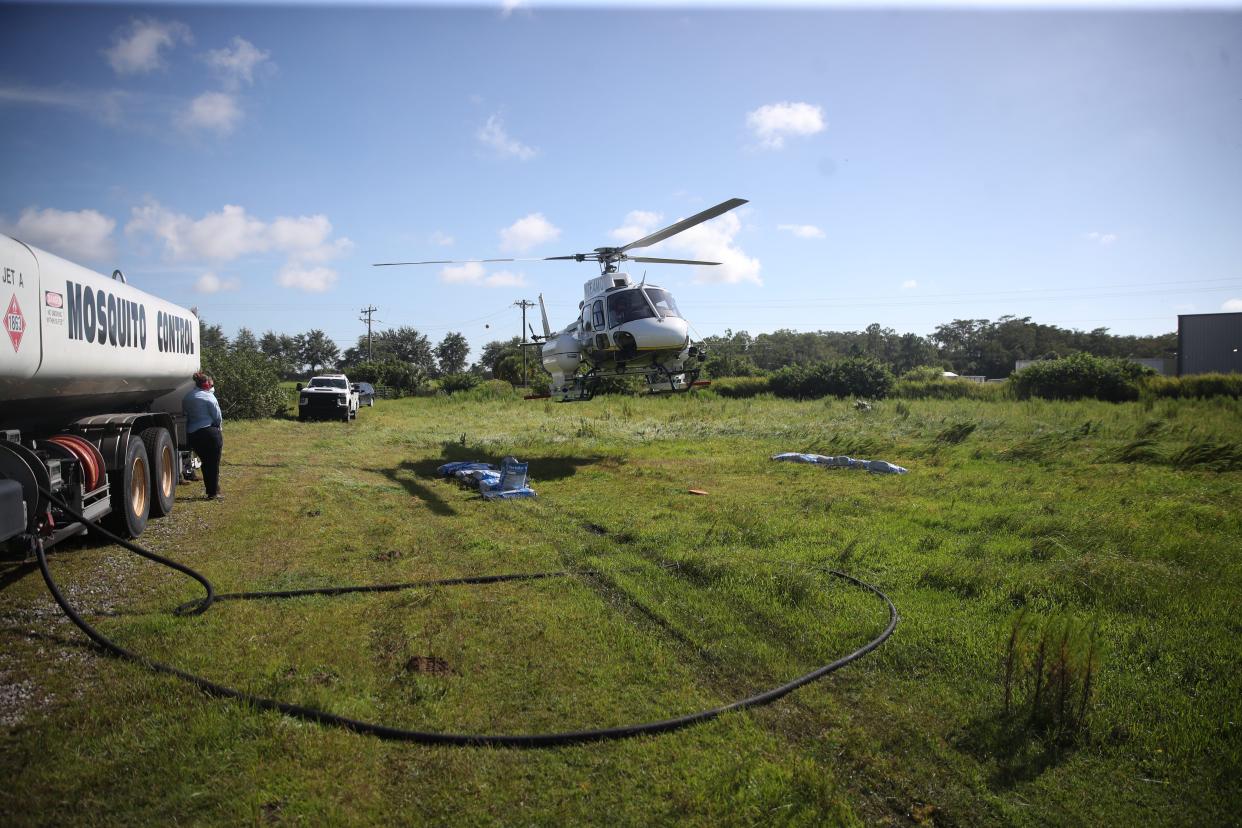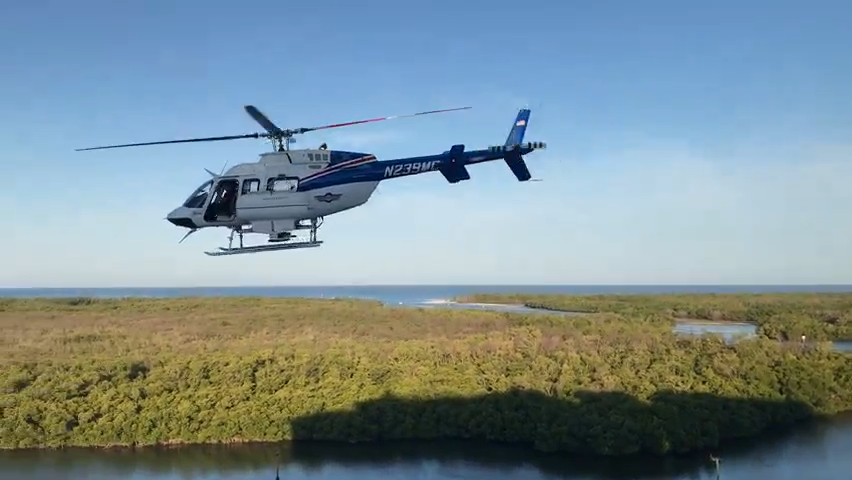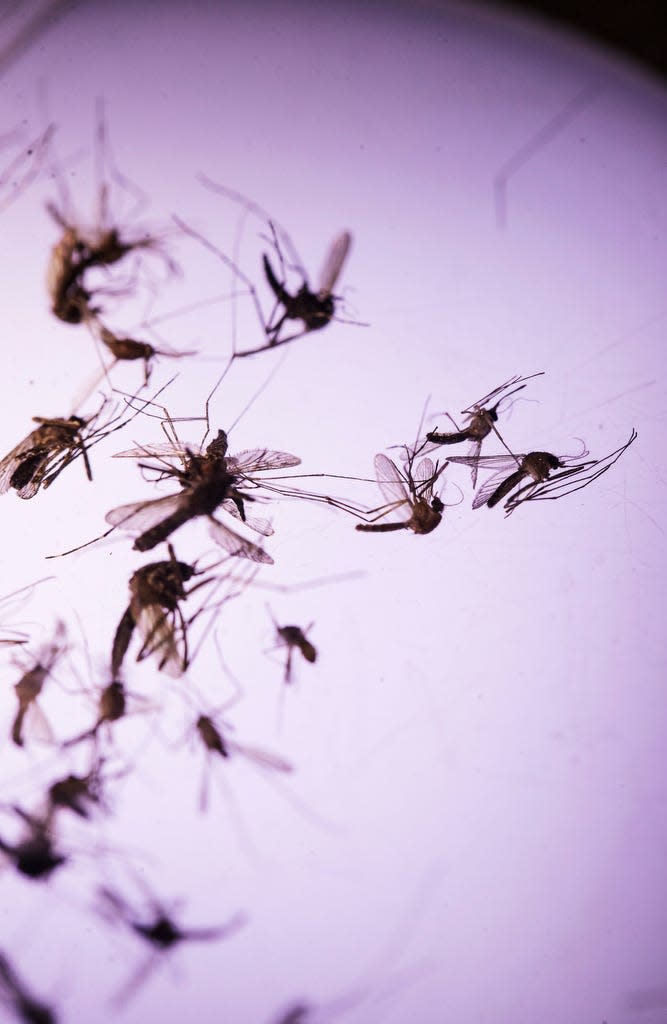Lee, Collier County officials monitor for malaria as Sarasota faces 6 local cases

Collier and Lee counties have been spared locally acquired malaria but public health and mosquito control officials are monitoring the region after cases reported in Sarasota.
Lee County has had one case of malaria this year, in May, but the individual was infected outside of the United States, according to the state Department of Health.
Officials in Sarasota reported Thursday two new cases of malaria that were acquired locally, bringing the tally up to six local cases in that county since June 19.
The two additional cases in Sarasota were reported the week of June 25 to July 1, according to DOH.
Malaria is transmitted by bites from an infected mosquito, which means the six people in Sarasota contracted the disease from bites from infected mosquitoes in the community.
Sarasota and Manatee counties have been under a mosquito-borne illness alert since June 19.
More: Michigan family mourns loved one who came to Naples to help, acquires deadly infection
More: CDC warns of potentially deadly invasive bacteria now found in southern Gulf states
When the case count hit four in Sarasota, the state health department issued June 26 a statewide advisory about mosquito-borne illnesses that cautions the public to take precautions.
How to be safe
The best measures are simple steps:
Wear EPA approved insect repellent.
Dress in long sleeves and pants when reasonable.
Eliminate sources of standing water around your home.
Avoid being outdoors at dawn and dusk when mosquitoes are most active.
The risk of locally acquired malaria is extremely low in the United States, according to the U.S. Centers for Disease Control and Prevention.
Most malaria cases are the result of bites from infected mosquitoes outside the country and then the individuals travel to the U.S.
For instance, Lee County had five cases in 2022 but all were acquired outside of the U.S., according to state data.

Collier’s last case was in 2017 and that, too, was imported from outside the U.S.
Locally acquired mosquito-transmitted malaria cases can occur; the Anopheles mosquito vectors exist throughout the U.S.
The last outbreak of locally-acquired malaria was in 2003 in Palm Beach County which had eight cases.
But what about Texas?
Malaria has also been reported recently in Cameron County in Texas, according to the CDC.
The federal agency is working with state health departments in both Florida and Texas to investigate the local cases.
“There is no evidence to suggest that the cases in the two states are related,” the CDC says on its website.
Malaria was reported in April in Costa Rica, according to the federal agency.
What is malaria?
Malaria is a serious and sometimes fatal disease caused by a parasite that commonly infects a certain type of mosquito that feeds on humans.
Symptoms commonly are fever, chills, sweats, headache; nausea and vomiting. Additional symptoms can be body aches and general malaise, according to the CDC.
In countries where malaria is infrequent, the symptoms are often attributed to influenza, a cold, or other common infections
In general, malaria is a curable disease if diagnosed and treated promptly. Several good antimalarial drugs are available and should be given early on.
About 2,000 cases are diagnosed in the U.S. each year with the vast majority involving travelers and immigrants returning from countries where transmission occurs, many from Africa and South Asia

What mosquito control districts are doing
Both the Lee and Collier mosquito control districts are monitoring populations of the mosquitoes that can spread malaria by the Anopheles mosquitoes in the community.
“We do this year-round as part of our normal operations, and are prepared to respond to any imported or locally transmitted case of malaria in Collier County,” according to Collier district spokeswoman Andrea McKinney.
“We are in constant communication with the Florida Department of Health in Collier County so we can respond in a timely manner if needed, she said.
Eric Jackson, spokesman for Lee mosquito control, said the recent cases of malaria reported in Sarasota is a reminder that mosquitoes in Southwest Florida are capable of carrying parasites and viruses that can affect people.
“However, taking proactive measures like using repellant and covering up when mosquitoes are active can significantly reduce the risk of getting bitten by mosquitoes,” Jackson said.
While there is never a "typical" mosquito season, Collier is not seeing higher than normal mosquitoes so far, McKinney said.
As summer continues and the region sees rain on a daily basis, there will be more freshwater mosquitoes, she said.
“We test our local mosquitoes weekly for West Nile virus and have not seen any positive pools of mosquitoes for disease this year,” she said.
Sarasota Herald-Tribune reporter Anne Snabes contributed to this report.
This article originally appeared on Naples Daily News: Malaria in Florida: Here are steps to keep your family safe

